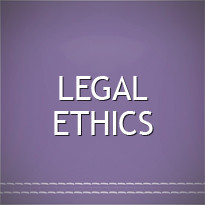Nelson Lai was convicted of murder. He filed a motion for reconsideration where he raised the issue of denial of due process because the judge who decided the case, Judge Fernando Elumba, when he was a prosecutor appeared as public prosecutor in the same case which Lai was convicted in. The case reached the Supreme Court.
Elumba explained that he only entered his appearance as prosecutor in the case when the prosecution already rested its case; he was not the one who actively prosecuted the case. In fact, he only appeared during the presentation of the last witness for the defense and it was not even him who cross-examined the witness as there was a private prosecutor who conducted the trial; that at any rate, Lai should have sought his disqualification prior to the rendition of the judgment of conviction.
ISSUE: Whether or not a prosecutor who was appointed to the bench may decide a case in which he entered appearance as prosecutor.
HELD: No. His disqualification in the case as judge is mandatory as per the Rules:
Section 1 [RULE 137]. Disqualification of judges. – No judge or judicial officer shall sit in any case in which he, or his wife or child, is pecuniarily interested as heir, legatee, creditor or otherwise, or in which he is related to either party within the sixth degree of consanguinity or affinity, or to counsel within the fourth degree, computed according to the rules of the civil law, or in which he has been executor, administrator, guardian, trustee or counsel, or in which he has presided in any inferior court when his ruling or decision is the subject of review, without the written consent of all parties in interest, signed by them and entered upon the record.
Also, Section 5, Canon 3 of the New Code of Judicial Conduct for the Philippine Judiciary, demands the disqualification of a judge who has previously served as a lawyer of any of the parties, to wit:
Section 5. Judges shall disqualify themselves from participating in any proceedings in which they are unable to decide the matter impartially or in which it may appear to a reasonable observer that they are unable to decide the matter impartially. Such proceedings include, but are not limited to instances where:
x x x x
(d) The judge served as executor, administrator, guardian, trustee or lawyer in the case or matter in controversy, or a former associate of the judge served as counsel during their association, or the judge or lawyer was a material witness therein; x x x.
The SC reiterates, ‘the cold neutrality of an impartial judge‘ is an indispensable imperative of due process.
It does not matter that Elumba’s degree of participation as a prosecutor was only passive. The purpose of this stricture is to ensure that the proceedings in court that would affect the life, liberty and property of an accused should be conducted and determined by a judge who was wholly free, disinterested, impartial and independent.


